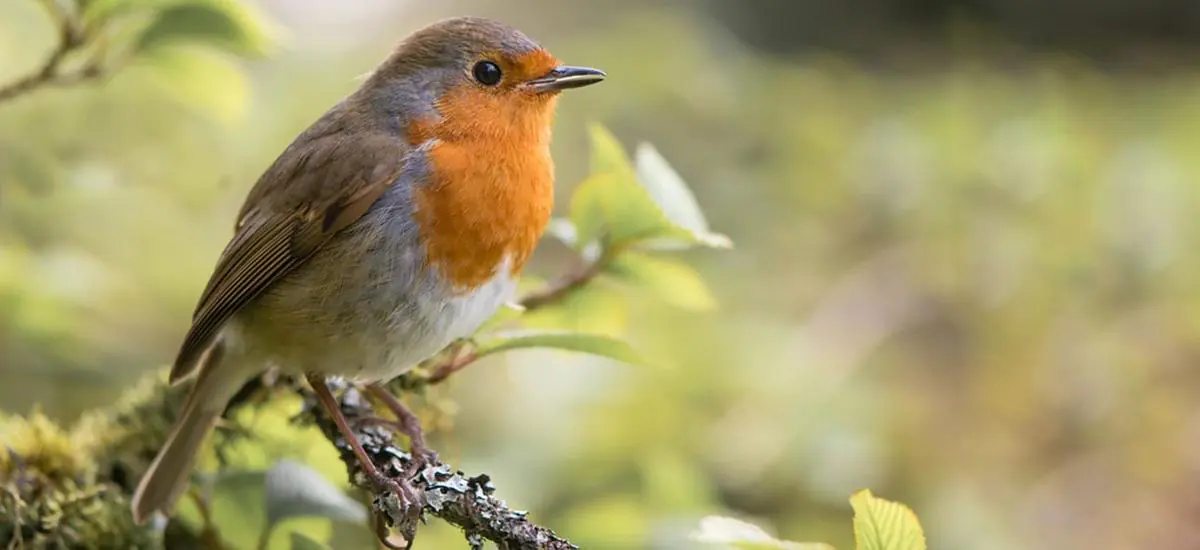We Love Robin Red Breasts!
You say, Batman. We say ROBIN!
We are convinced the Robins which visit our farm are getting friendlier, more inquisitive and dare we say it; more demanding!
The site of the Robin Redbreast to us means Christmas, mulled wine, mince pies, crispy cold frosty mornings are slowly creeping upon us. Of course, we just LOVE seeing their brightly coloured red chests too.
Robins are very territorial and will spend most of the year protecting their chosen area, although they may be small they are certainly mighty. Robins are one of the most territorial birds, they also like to breed.....a lot!
Many females can lay three to five broods a year, depending on how early the breeding season starts. Each brood can contain up to five eggs. Now that is a lot of babies to take care of and nurture.
At this time of year, Robins are thinking about nesting for the winter months and come January the mating season will typically start.
Good Tenants
Robins are notoriously great tenants as they will literally nest anywhere. You may not have even noticed a robin nesting in your garden, but always be aware when you are moving things or garden objects around you are not disturbing a nest. Some gardeners have reported finding them in old boots, old planting containers and even tucked up warm and safe in the shed.
Robins do not typically return to the same nest each year unless the nesting place is of a particular preference for them.
All the better to see you with
Have you ever noticed how large their eyes are in comparison to the rest of their body?
Their large eyes make them more susceptible to dawn and dusk. It is believed it is why urban robins feed under the street lamps. They will always be the first to sing at dawn and usually the last to nest at dusk too.
Robins are very sensitive to light, so be aware of this if you live in an urban area, you may be graced with their presence a lot later into the evening than country folk.

Robin
Top Robin Tips
We are going to share our top tips on how you can attract the delicate, boisterous Robin to your garden....and keep them there this winter too.
Nesting
- Nest boxes should be open-fronted and placed in a hidden location. Buy Robin specific boxes to allow them easy entry.
- Vegetation or an overgrown corner of the garden would be perfect for a Robins nest.
- Always check old boots or other random garden objects as you may well find a Robins nest tucked away
- Try leaving out an old watering can or boot and see if you can attract a Robin to your homemade nest.
Feeding
- Robins are natural ground feeders, so feeding trays or hanging Robin feeders are ideal.
- Food should be a mixture of birdseed and sunflower hearts.
- For a lovely treat small amounts of cheese and dried mealworms can also be left out. Robins have a weak spot for mealworms, whether live or dried.
- There are some high quality robin bird food mixes around that are fantastic for offering directly on the ground.
- Frozen or fresh fruit is also a great option, apple slices, raisins, blueberries, strawberries, raspberries, and cherries.
Breeding
- Offering ground feeding trays will attract males to your garden. From January to March male robins use up to 1/3 of their weight trying to attract a mate.
- Typically Robins lay their first brood around the end of March; however, if the weather is mild this could be earlier.
- Baby Robins need food every 30 minutes from dawn to dusk so leaving out food is greatly appreciated.
A flash of Red
We simply love seeing the flash of colour from the breast of a robin on the farm, not only does it help get us in the festive mood it also makes us appreciate just how lucky we are to have such a beautiful bird as the nation's bird.
Little Robin Redbreast sat upon a tree
Up went pussy cat, and down went he!
Down came pussy, and away Robin ran;
Says little Robin Redbreast
"Catch me if you can!"
as he jumped upon a wall
Pussy cat sulked away with a big sad sigh
Little Robin Redbreast chirped for joy and flew up to the sky
To attract more Robins to your garden, try our My Robin and Me Seed Mix. It's completely wheat free and packed with lots of healthy nutrients for your wild robins including mealworms and high quality suet pellets.

